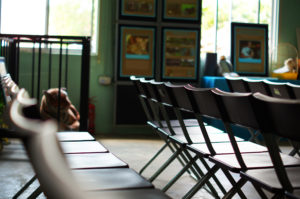How We Help Rescued Wild Animals
Wildlife Rescue FAQs
What animals does ACRES rescue?
ACRES rescues any wild animals in need of help in Singapore. This includes native wild animals (such as pythons, monitor lizards, civets and pangolins) and also exotic animals who have been illegally brought into Singapore to be illegally sold as pets, who may be handed over to us by their owners, or may be found abandoned.
What happens to the animals that you rescue?
For native wild animals, if they pass their health checks they will be released back into the wild, at a suitable site, straight away. If a native bird / reptile / amphibian needs treatment and some time to recover before being released back to the wild, we will bring them to the AWRC for treatment and for a recovery period in the Wildlife Recovery and Rehabilitation Centre.
For reptiles and amphibians rescued from the illegal wildlife trade, these animals will have a safe home at the AWRC for as long as they need it, and we will do our best to repatriate them to rescue centres in their country of origin.
What do I do if I find a wild animal in need of help?
Call the ACRES Wildlife Rescue Hotline on 9783 7782 (manned from 7am to 1am daily) for assistance. If your call goes unanswered, it might mean the rescue team is attending to another case. Please WhatsApp photos of the animal and/or wound, location/surroundings, and your name so they may advise you as soon as they can.
I’ve been keeping a turtle as a pet, but I didn’t know it was illegal. Now that I know, can I hand over my turtle to ACRES?
Please call the ACRES Wildlife Rescue Hotline at 9783 7782, or email to info@acres.org.sg.
I have a red eared slider that I no longer want to keep – can I hand him over to ACRES even though it is not illegal to keep them?
ACRES does not take in red-eared sliders at the AWRC as we need to keep the space we have at the Wildlife Recovery and Rehabilitation Centre for rescued exotic animals that are illegal to be kept as pets in Singapore and also for native animals in need of help.
If you really cannot keep your red eared slider as a pet anymore it is important that you find a proper, secure home for him.
Please do not release your red-eared slider into a park or nature reserve- not only is this against the law, but he or she may well die a slow, painful death if he cannot find food or a safe place to live. If he does survive, his presence will unbalance Singapore’s delicate ecosystem and his competing for food will push our native turtles and other wild animals towards extinction.
Do I have to pay for ACRES to come and relocate wild animals like snakes or baby wildlife from my home or garden?
We do not charge to relocate or rehabilitate a wild animal from your home, although donations are always much appreciated and allow us to continue and expand our wildlife rescue efforts.
Please note that as a charity organisation with limited resources, ACRES does not conduct reconnoitres to trap and relocate wild animals like bats, civets, snakes, or birds. You may find advisories on wildlife etiquette for such animal encounters on Our Wild Neighbours, and get tips on coexisting with our wild neighbours.
Can I visit the animals at the AWRC?
Yes, you can visit the animals at the AWRC with a minimum donation of $20 per person (valid for 250% tax deduction) for the tour, which will go to our animal protection programmes. As a non-profit charity for animal protection in Singapore, it is challenging for us to raise much-needed funds to continue our work.
Please make an appointment with us by emailing us at education@acres.org.sg. We have a range of educational programmes on offer at the AWRC for schools, community groups, or anyone who would like to learn more about wildlife protection.
Can I volunteer to help look after the rescued animals at the AWRC?
Yes, we have a special “Wildlife Sanctuary Volunteer” programme for individuals aged 18 and above, which includes opportunities to assist with animal care at the AWRC. You can sign up for this programme here or email info@acres.org.sg for more details.
Can we adopt animals from the AWRC and keep them as pets?
You cannot adopt any of the animals from the AWRC and take them home with you as they are either exotic animals that are illegal to keep as pets in Singapore, or native wild animals who need to be returned to the wild. ACRES is also strongly against the keeping of wild animals as pets on welfare grounds.
How can we support the wildlife rescue work of ACRES?
We are always in need of funds to keep our rescue services going. Our wildlife rescue service operates daily (7.00am to 1.00am), 365 days a year. Right now, we are being called to rescue as many as 300 animals every month.
It costs us anywhere from SGD$80 to SGD$500 to rescue a tortoise, pangolin, monitor lizard or other wild animal and release him or her back into the wild. This includes the cost of a medical check-up, a microchip implant, medication, treatment, equipment, manpower and transportation. The costs are much higher for injured creatures who need long-term care and nursing before they are well enough to be released.
Not only are funds needed to keep the AWRC running (which means regularly restocking supplies of everything from food and substrate to diesel and disinfectant), we also need to upgrade our medical equipment. You may also be keen to take a look at our Wishlist, as donations in kind are also welcome, and will greatly offset our expenses.






